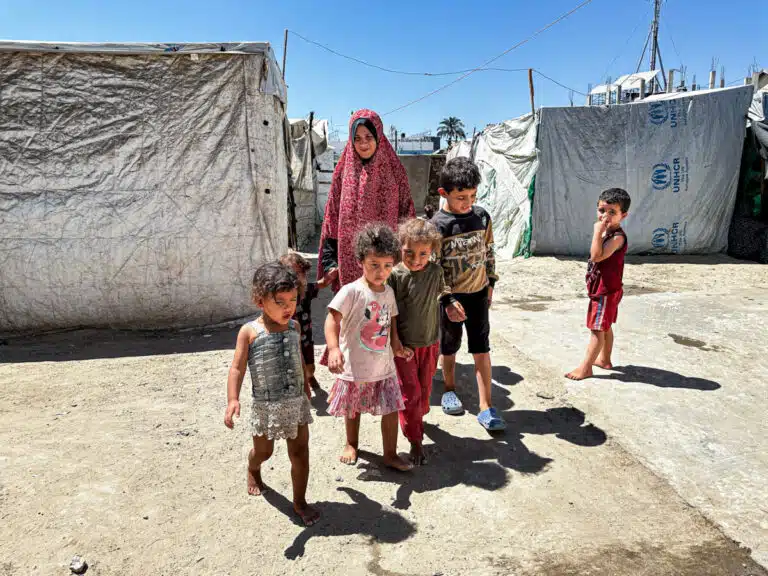DEC Middle East Humanitarian Appeal raises over £11mn in 2 days

The Disasters Emergency Committee’s (DEC) Middle East Humanitarian appeal raised £8.8 million within 24 hours of the launch, and was up to £11mn the following day (Friday 19 October).
This total includes donations from the UK public, DEC corporate partners and longstanding supporters. Donations are being matched pound for pound by the UK government up to £10mn, as part of its aid match scheme.
The appeal launch saw nationwide television and radio broadcast appeals fronted by Adjoa Andoh, David Morrissey, Myleene Klass and Ruth Wilson, calling for support from the public.
Advertisement
Their Majesties The King and Queen were among the first to donate, and The Prince and Princess of Wales have also donated. All are regular supporters of the DEC.
All 15 of the DEC’s members are responding or planning to respond in the Middle East, either themselves or through local partners, and will receive funds from this appeal. They are: Action Against Hunger, ActionAid UK, Age International, British Red Cross, CAFOD, CARE International UK, Christian Aid, Concern Worldwide UK, International Rescue Committee UK, Islamic Relief Worldwide, Oxfam GB, Save the Children UK, Tearfund and World Vision UK.
The majority of funds from this appeal will be spent in Gaza and Lebanon, and some will support people in the West Bank. The DEC is currently monitoring the situation in Israel with a number of its charities ready to expand their response to include it if necessary.
Famine ‘becoming a reality’
On Friday, the DEC warned that almost 2 million people are experiencing extreme hunger and food shortages in Gaza as conflict continues, with the risk of famine becoming a reality.
A new food security forecast released by the global food monitor the IPC on 17 October show the risk of famine in Gaza persists, with the number of people facing ‘catastrophic’ levels of hunger expected to nearly triple between November 2024 and April 2025.
Over 70% of crop fields in Gaza have been destroyed while access to medical care and clean water is scarce. Malnutrition levels are ten times higher than before conflict escalated, and from now until August 2025, it is estimated that there will be 60,000 cases of malnutrition in children between six months and five years-old. Deaths from malnutrition have already been reported in Gaza for several months now.
In Lebanon, over 1 million people have been displaced and many need emergency access to food as shelters cannot keep up with demand. Before the conflict escalated, 80% of the population was living in poverty and many families were already facing hunger daily.
In the West Bank, the World Food Programme estimates that the escalation of violence could push at least 600,000 people into food insecurity.
Madara Hettiarachchi Director of Programmes and Accountability, at the DEC, said:
“The destruction of crops in Gaza means that access to fresh food has become severely limited, and the price of food available has become too expensive for many families to afford. Often, parents are going without meals to ensure their children have enough to eat.
“Despite the many challenges, our member charities have been responding throughout the past year to treat and prevent malnutrition in children, and provide food and nutritional support to people in Gaza. But as winter approaches the need is growing, and we urgently need more funds.
“The risk of famine is real. Without humanitarian access and support, hunger in Gaza will only increase.”





